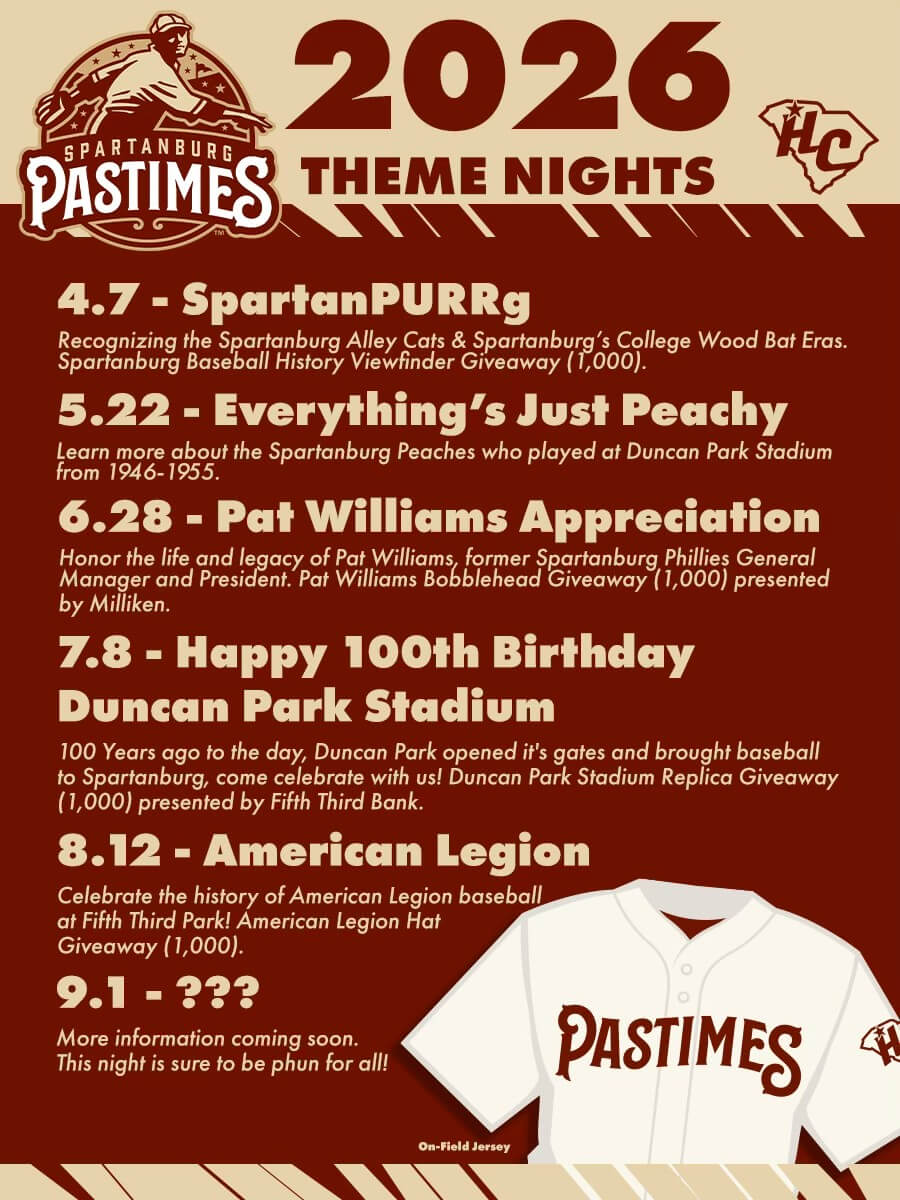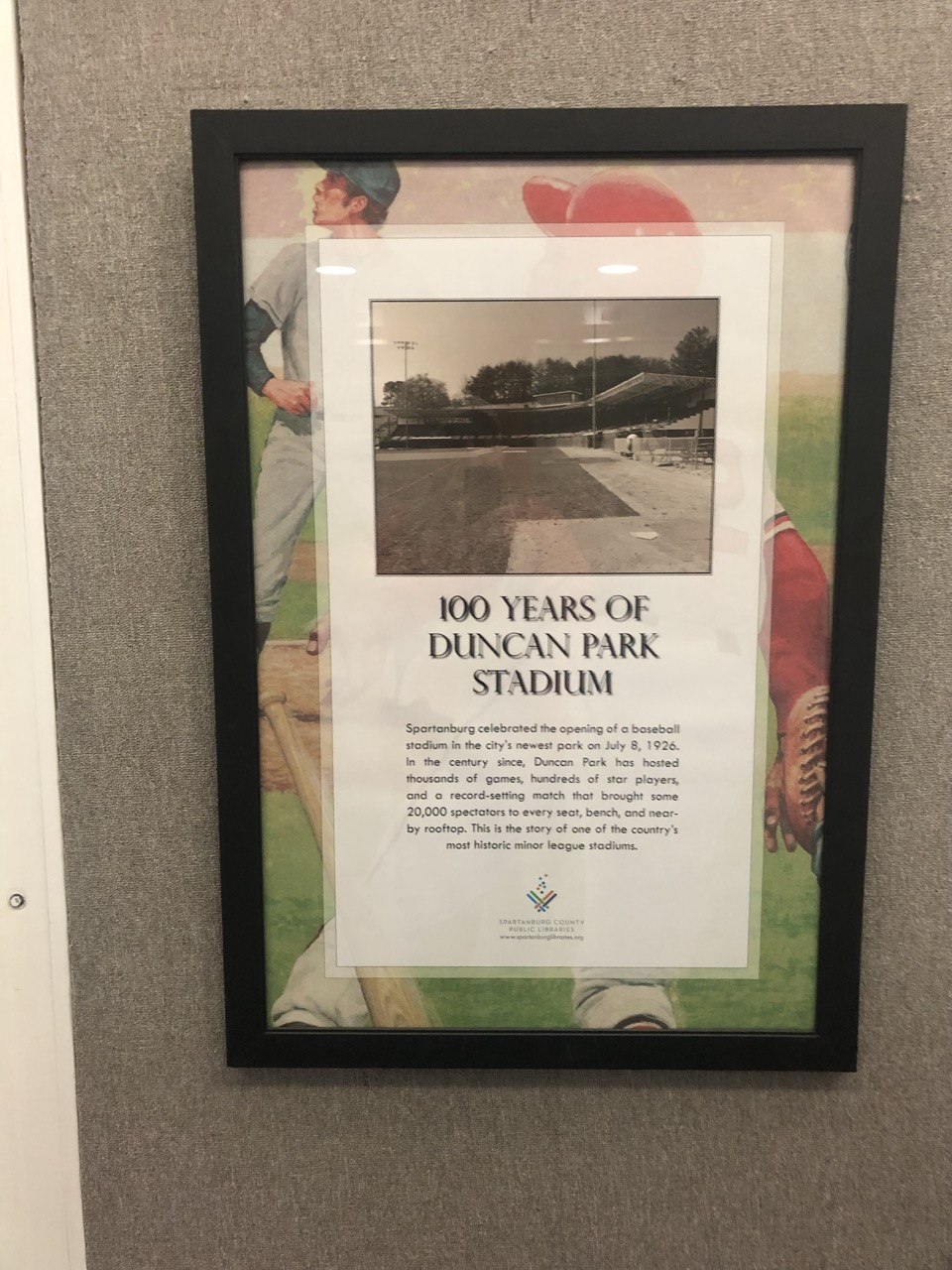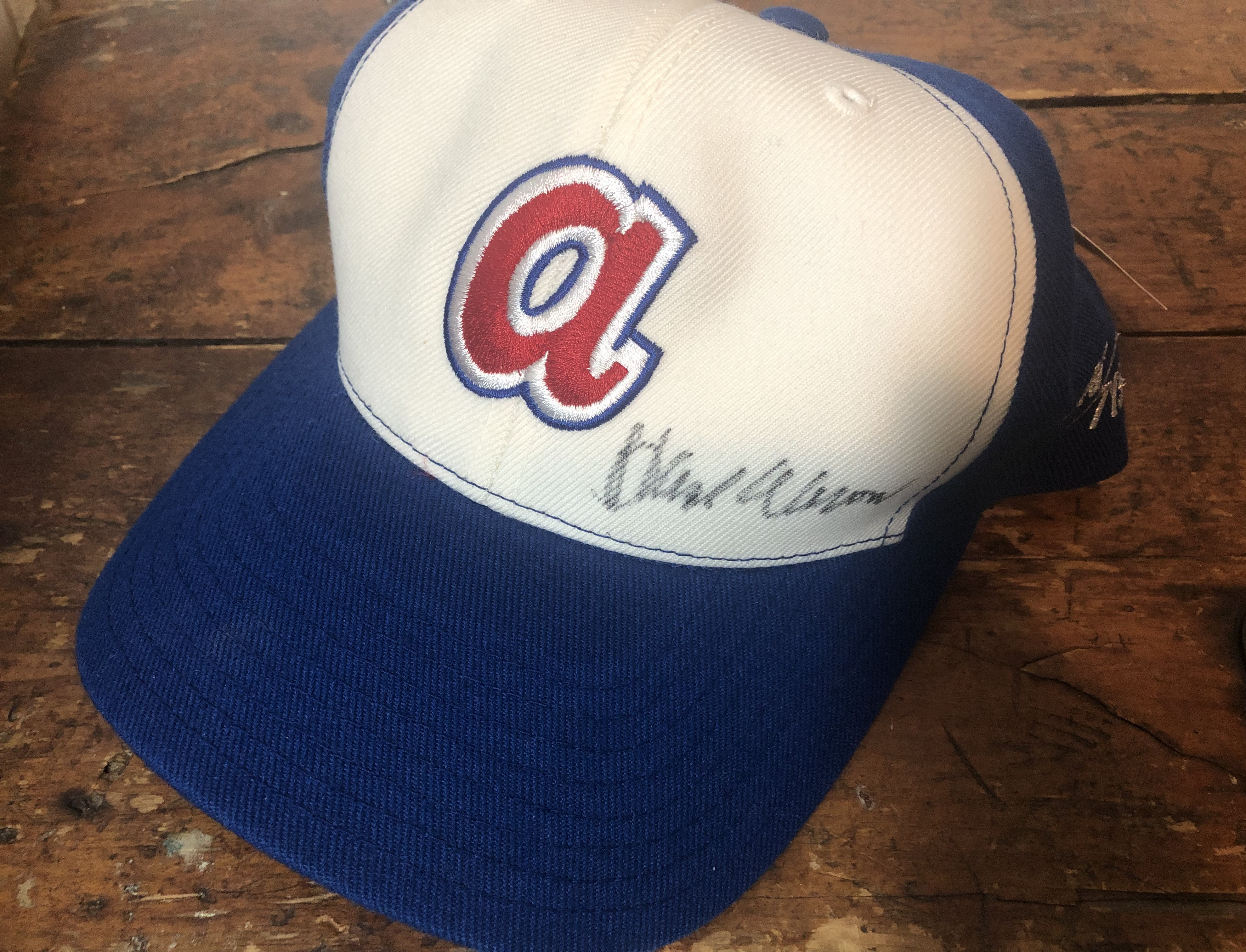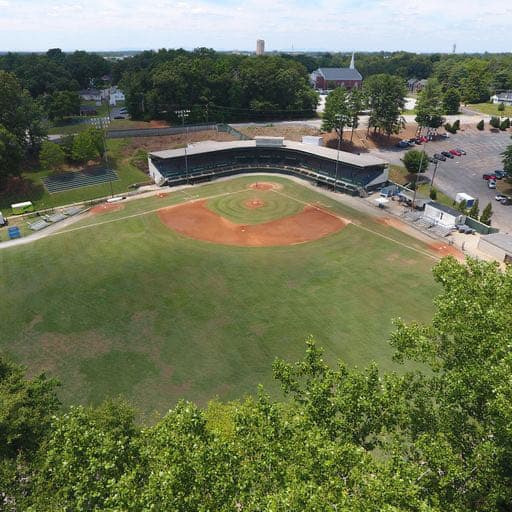
Judge Landis Comes to Town
Dr. Edwin C. Epps
A little after one o’clock in the afternoon of Wednesday, July 28, 1926, Judge Kenesaw Mountain Landis rose in the banquet hall of the Cleveland Hotel to address the most influential citizens of the small town of Spartanburg, South Carolina, the Hub City of the Piedmont, well known as a railway hub and, increasingly, as one of the busiest textile mill centers in the United States.

Judge Landis Comes to Town
A little after one o’clock in the afternoon of Wednesday, July 28, 1926, Judge Kenesaw Mountain Landis rose in the banquet hall of the Cleveland Hotel to address the most influential citizens of the small town of Spartanburg, South Carolina, the Hub City of the Piedmont, well known as a railway hub and, increasingly, as one of the busiest textile mill centers in the United States.
A little after one o’clock in the afternoon of Wednesday, July 28, 1926, Judge Kenesaw Mountain Landis rose in the banquet hall of the Cleveland Hotel to address the most influential citizens of the small town of Spartanburg, South Carolina, the Hub City of the Piedmont, well known as a railway hub and, increasingly, as one of the busiest textile mill centers in the United States. Mayor Ben Hill Brown was there. So were municipal officials from Columbia, Augusta, Georgia, and Charlotte.
The luncheon was organized by the local Chamber of Commerce, and the Chamber had done its job well. A total of 206 tickets to the event had been sold in advance, and others without prior reservations were expected to attend.
There were other out-of-town dignitaries in attendance in addition to the Judge. W. G. Brabham, president of the Sally League, was on the dais. So was M. H. Sexton, president of the National Associations of Professional Base Ball Leagues. In the audience were representatives of the local bar association, every civic club in town, and American Legion Post 28. Perhaps most importantly there were also members of the family of Major David R. Duncan.
In some ways these latter citizens were the most important, for the occasion was the formal celebration of the opening of Duncan Park stadium, the state-of-the-art classic wooden grandstand ballpark erected on land donated to the City of Spartanburg by the Major’s children in 1923 to memorialize their father and his standing in the community. The Major had ridden with Stonewall Jackson’s Corps during the War Between the States. After the War he had put his name, his standing, his innate intelligence, and his law degree to work and established himself as a pillar—perhaps the sturdiest and most dependable pillar—of the civic life of his hometown.
The Major had successfully run for office and had served as the local Representative to the General Assembly in Columbia as well as a state Senator, Solicitor of the 7th Judicial Circuit, President of the Spartanburg and Asheville Railroad Company and Director of a number of successful corporations. Moreover, his children’s mother was the daughter of the wartime Governor of the Commonwealth of Virginia. In short, there was no more widely respected citizen of Spartanburg, South Carolina, than Major David R. Duncan. When he passed on to his heavenly reward on January 28, 1902, after a long illness, his death was mourned by all.
Judge Landis didn’t know the full history of the Duncan family, but when he rose to speak to his audience he had been made aware of their importance to this prosperous little city. He also knew about the importance of the Spartanburg Spartans, the semipro home team which would claim Duncan Park stadium as its home turf. During the summer before he gave his speech to the City fathers the Spartans had taken the South Atlantic League title by winning 31 games more than they lost at other diamonds in the city and beyond. Their coach Mike Kelly was also hugely popular—the local paper The Journal and Carolina Spartan reported that “…in Spartanburg—well, they’d elect Mike mayor or dog-catcher or anything anytime he wanted to run for office.”
Judge Landis therefore chose his words carefully and delivered them with an eloquence better suited to the banquet tables of New York and Chicago, where he more often delivered such remarks. He called the new ballpark “the completest park in minor leaguedom,” noting in particular its natural setting, nestled into a hillside with an inviting grove of trees beyond the outfield wall. The Spartanburg Journal and Carolina Spartan reported that the other banquet attendees were also “loud in Praise and commendation of our new ball park.”
Initial plans for the day’s celebrations called for a grand parade after the luncheon, followed by an official dedication ceremony and then a game between Mike Kelly’s Spartans and their Capital City opponents, the Columbia Comers. The entire city was buzzing with anticipatory excitement.
Unfortunately, the post-luncheon plans had to be scrapped. A prolonged downpour flooded the field at Duncan Park stadium, turning it into a muddy swamp, and the game had to be postponed. The weather augured ill for the team’s season too, which had begun at Wofford Park because the new stadium was not yet ready. The team finished the year with a record of only a break-even 74-74, good for just 5th place in the league.
Duncan Park stadium’s inauspicious beginning was redeemed in the end however. Today the stadium is 96 years old and still in use by Spartanburg High School, American Legion Post 28, Youth Sports Bureau clinics, and special tournaments featuring independent teams in the Piedmont. During the 96 years of its existence the stadium has been the home field of three Minor League teams, three wooden bat league collegiate teams, a semipro Negro Leagues team that featured a left-handed pitcher known throughout the South, Wofford College, the University of South Carolina Upstate, and others.
Duncan Park stadium was the center of a city-wide celebration of aviator Charles Lindbergh not long after he flew across the Atlantic Ocean, and it was the site of a local Woodstock-like music festival during the Summer of Love. Jackie Robinson's All-Stars played here, as did the New York Yankees once on the way back home from Spring Training. Hundreds of little kids--and a few big ones too--have hot-footed it down the stadium's concrete walkways in search of errant foul balls.
The story is deep, long, hilarious, touching, and occasionally tragic. We will tell the story of it here in the months to come.
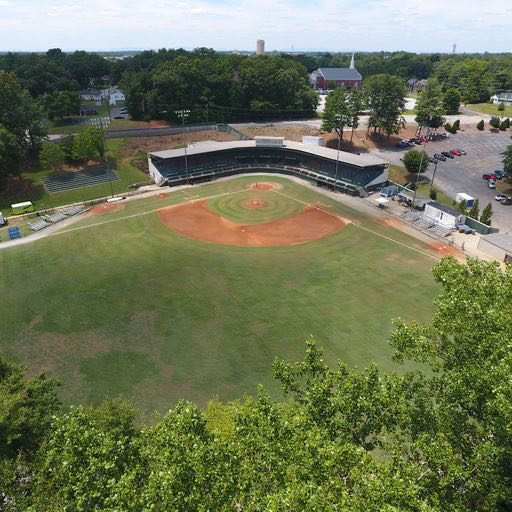
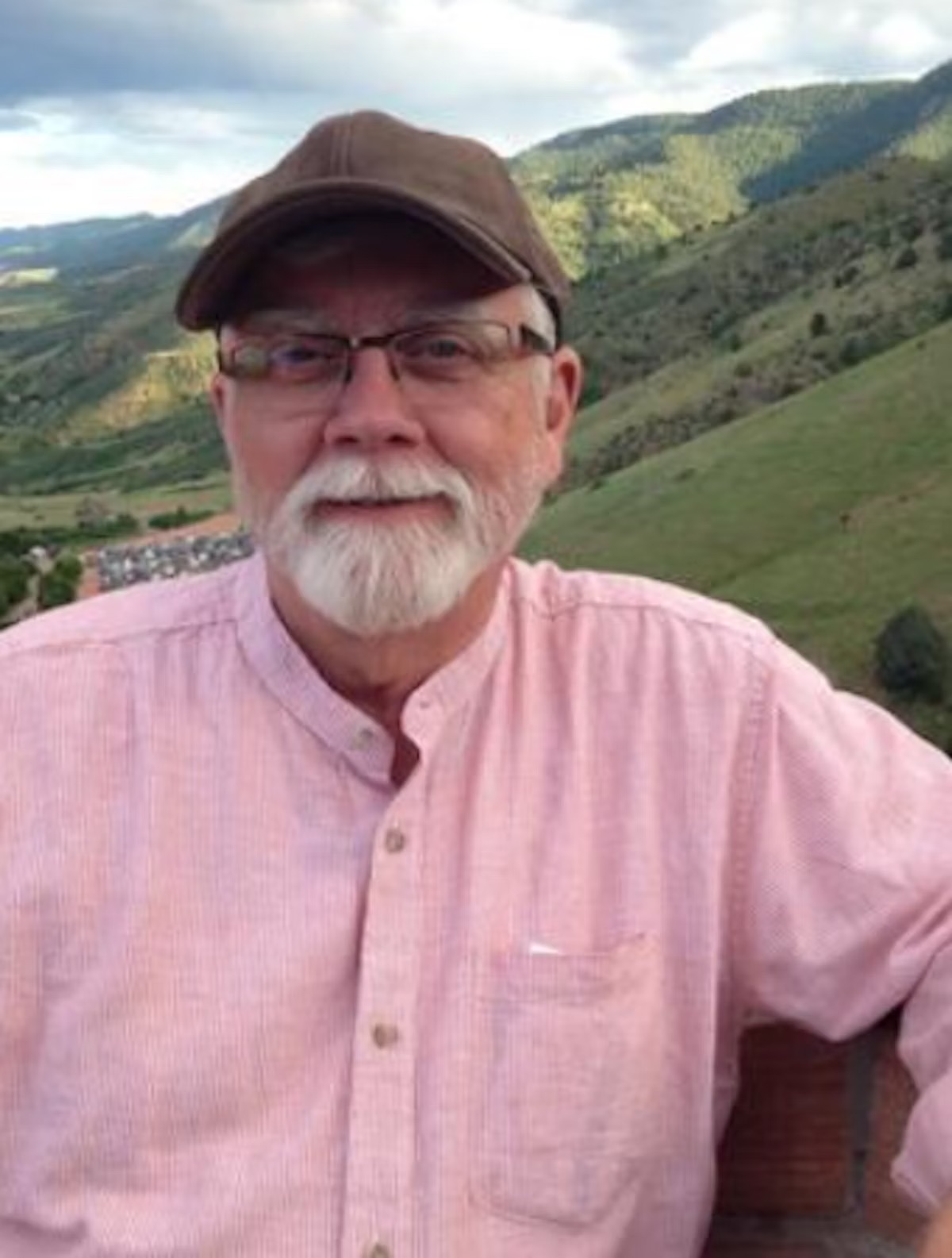
Dr. Edwin C. Epps
Author
Dr. Edwin C. Epps is a retired educator with more than forty years' experience in public school classrooms... He is the author of Literary South Carolina (Hub City Press, 2004) and a proud member of Phi Beta Kappa who believes in the value of the humanities in a rapidly changing world.

